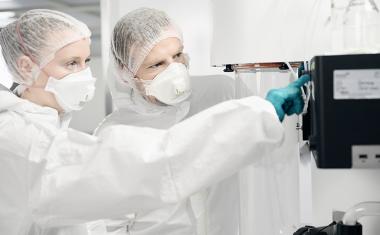Braskem Inaugurates Bahia Plants
Braskem inaugurates two new plants at the Camaçari Industrial Complex. They represent a new landmark in the company's operations in the world of renewable materials. The plants will produce ETBE, a bioadditive for gasoline made from renewable raw material. The installation project for the new units absorbed investments of around R$ 100 million, with a total annual production capacity of 212 thousand tons of the product.
"Like the Green Plastic, which will begin to be produced on an industrial scale starting next year at the Triunfo Complex, in Rio Grande do Sul, ETBE is an innovation that stems from research Braskem has been carrying out over the past three years, when the company faced the challenge to find a sustainable alternative to replace MTBE, as a result of the environmental restrictions the product was encountering in the international market, mainly from the Japanese and American markets," says Manoel Carnaúba, vice-president of Basic Petrochemicals at Braskem.
With the specification of ETBE, Braskem begins to set aside part of production for the Japanese market as a result of the long-term contract signed with Sojitz Corporation. The agreement involves the supply of 120 thousand tons of the product over three years. In Japan, the introduction of fuels derived from biomass was decided in the Kyoto Protocol. Beginning in 2010, the Japanese oil industry plans on placing 840,000 m³ of ETBE per year. Approximately four million tons of ETBE per year are already being sold to Europe. Sojitz will begin to sell ETBE starting in 2009 and its goal is to expand these volumes in order to serve the Japanese and European markets.
Innovation And Sustainability
The ETBE plants in Bahia have what is most modern at Braskem in terms of safety - whether process safety (industrial reliability) or occupational safety for people ETBE (Ethyl Tertiary-butyl Ether) is obtained from ethanol's (43 %) reaction to isobutene (57 %), which characterizes it as a bioadditive. Since it is generated using renewable raw material (ethanol) ETBE makes it possible to capture CO2 emissions. "For every ton of ETBE produced, we stop emitting 783 kilograms of carbon in the upstream chain (impact prior to consumption)," says Mário Pino, manager of Corporate SSMA at Braskem, underscoring that this emission reduction demonstrates in practice the company's orientation towards sustainability.












